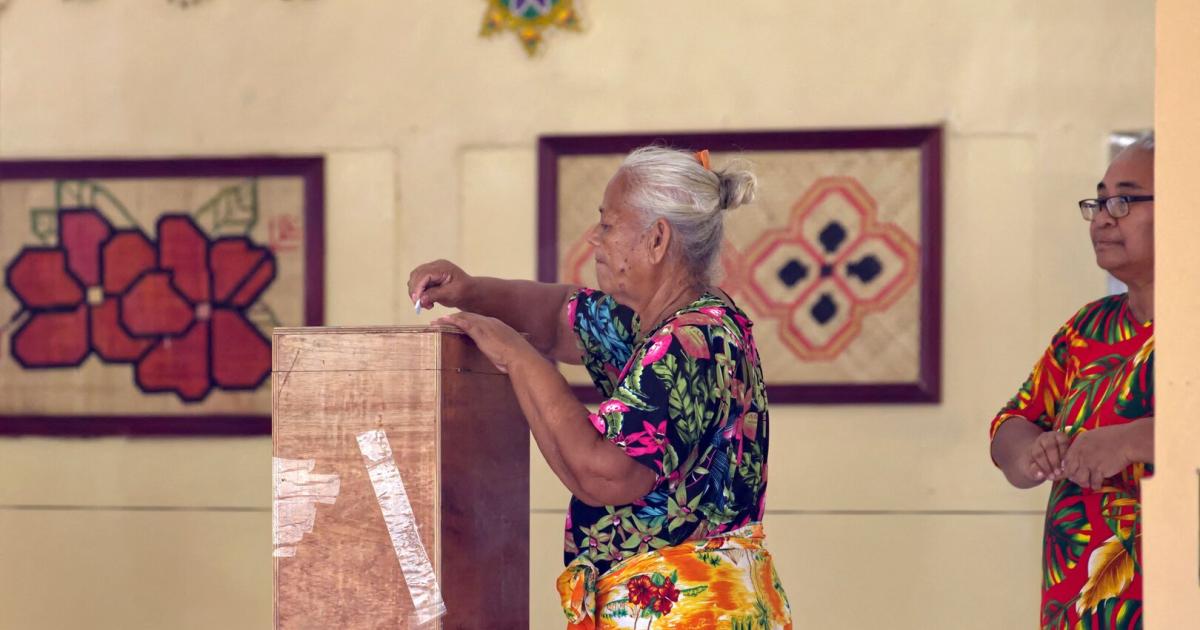Actually, Tuvalu is always a side note. Even as the 22 Pacific island nations get one of their rare moments in the global spotlight, the tiny republic is not alone. With just 11,000 inhabitants (slightly more than Sel am See), Tuvalu is the world's third smallest state, behind neighboring Niue (2,000) and the Vatican (514). Yet on Friday several major powers turned their attention to the atoll.
About 6,000 voters on Tuvalu's nine islands elected their new parliament on Friday. It consists of only 16 MPs who, after the election, choose a new Prime Minister from their positions and then appoint a new government.
Newly elected representatives must travel by boat to the capital, Funafuti – a difficult journey for some: the crossing from the most remote islands takes 27 hours.
A game of great powers
The election comes at a time when Tuvalu is already dealing with significant political heavyweights. China and the US are increasingly fighting their conflict over influence in the Pacific at the diplomatic level; Both major powers want to attract islands with strategic value to their side.
Boxed ballots must make the arduous journey by ship to be counted in Funafudi, the capital of Tuvalu.
© Image: REUTERS/TUVALU via Electoral Office
Tuvalu is still pro-Western and is one of the remaining twelve countries to recognize Taiwan as a state. Also on the table is Washington's offer to connect the islands to a global telecommunications network for the first time via a submarine cable.
But there have been a number of recent offers from Beijing that are making some decision makers in Tuvalu think twice. At least that's what the government is saying – without giving any details yet.
Which brings us back to the election: where the archipelago goes in the future depends on who forms the new government.
The political landscape in Tuvalu is manageable
The selection of potential Prime Ministers is manageable, as expected given the demographics. Incumbent head of government Gausia Natano is running again; He wants to keep Tuvalu politically aligned with allies the US, Australia and Taiwan. His previous finance minister, Chev Beniu, also says he wants to raise the question of whether to cut ties with Taiwan and establish ties with China.
However, one particular problem in Tuvalu is taking up more space in the political debate: the islands are heavily affected by the climate crisis. As sea levels rise, they will disappear completely within the next century.
➤ Read more: Australia accepts climate refugees for first time
So the outgoing government negotiated an agreement with Australia under which residents of Tuvalu could enter visa-free. But something special: Australia's government is demanding that Tuvalu be allowed to veto any foreign and security policy deal it enters into with another country in the future. The agreement remains unsigned in Funafuti. Whether this is accepted will depend on whether a better offer comes from China.

“Amateur coffee fan. Travel guru. Subtly charming zombie maven. Incurable reader. Web fanatic.”








More Stories
Nicolas Loufrani: Young Londoners Design Afro Hair Emojis
US Election: Trump Vs. Harris – 2024 poll numbers in America
Börse Express – USA: Retail sales rise unexpectedly